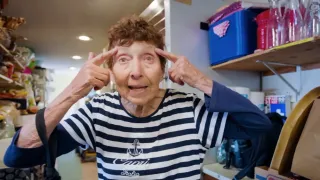June 26, 2017
Trump Administration Opposing Bid for Syphilis Study Museum
Jay Reeves READ TIME: 2 MIN.
BIRMINGHAM, Ala. -- The Trump administration opposes a bid to use unclaimed money from a legal settlement over the government's infamous Tuskegee syphilis study to fund a museum honoring victims of the research project.
The Justice Department argued in court documents recently that providing the money to the Tuskegee Human and Civil Rights Multicultural Center would violate an agreement reached in 1975 to settle a class-action lawsuit. For the study, hundreds of black men suffering from the sexually transmitted disease were allowed to go untreated for decades so doctors could analyze the progression of the illness.
The government said that it "does not intend in any way to justify, condone, or defend the Tuskegee Syphilis Study," but allowing remaining money from a $9 million settlement to be used for the museum would violate the settlement's original provision that any left over money go back to the government.
Fred Gray, a civil rights attorney who represented men in the study and made the funding request in 2016, declined comment on the government's position.
U.S. District Judge Myron Thompson held a telephone conference on the request on May 30, records show, but hasn't ruled yet.
Starting in 1932 and continuing for four decades, government medical workers operating in rural, segregated Alabama withheld treatment from unsuspecting black men infected with syphilis so doctors could track the disease and dissect their bodies afterward.
Revealed by The Associated Press in 1972, the study ended and the men sued, resulting in the settlement negotiated by Gray on behalf of the victims, all of whom have died.
The men wanted to be remembered in a memorial that told their story, Gray said in court documents, and a county-owned history museum that already includes exhibits about the study could use the "relatively small" amount of unclaimed money. The men's names are emblazoned in a circle on the floor of the museum, which only opens during the summer because of funding shortages.
The Justice Department said sending the money to the museum would "fundamentally alter the terms of the agreement."
Days after the government made its argument in legal documents, Attorney General Jeff Sessions issued a memo barring third-party organizations from receiving money from settlements involving the government.
Officials say more than 6,000 heirs of the roughly 600 men who were involved in the study received settlement payments through the decades, but an undisclosed amount of mainly interest earnings remains in court-controlled accounts. Court officials say they can't find additional descendants, if any exist.
Some descendants of the men have said they support using the settlement money to help the museum, while others like the idea of a new memorial at Tuskegee University, where the study was based. Still others want new medical screenings on relatives.
A judge's decision could be a step toward ending the study participants' class-action lawsuit, first filed in 1973.






